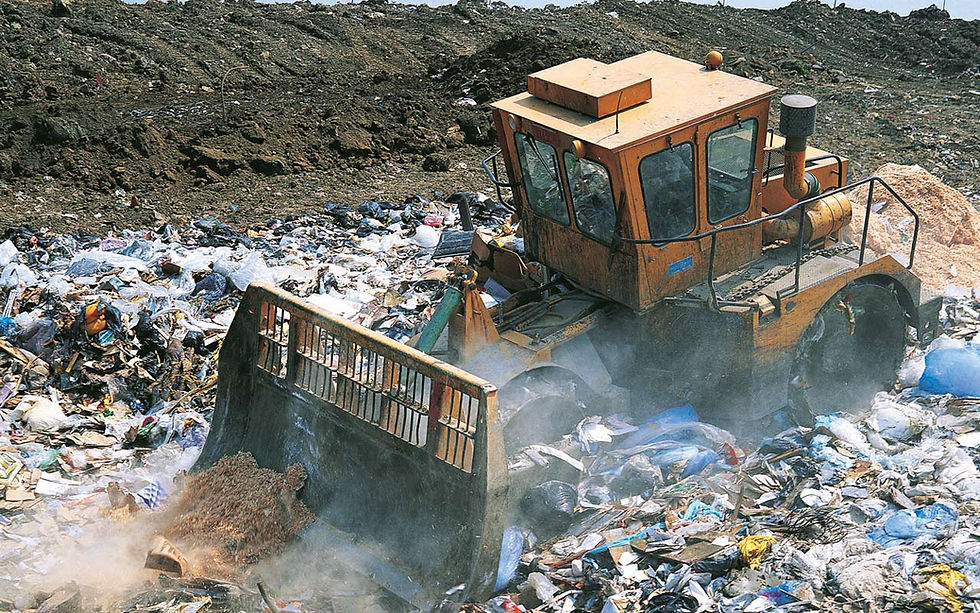How to Manage Construction Waste Effectively on Site
- david51651
- Jun 16, 2025
- 4 min read
Managing construction waste effectively is essential for both environmental sustainability and operational efficiency. As construction activities increase, so does the volume of waste generated. The construction industry is often criticized for its lack of waste management and disposal systems. Fortunately, there are actionable strategies that can help construction managers and workers significantly reduce waste and promote a healthier environment.

Understanding Construction Waste
Construction waste refers to the by-products generated during the construction, renovation, and demolition of buildings. This waste can include a variety of materials such as wood, concrete, metals, bricks, and plastics. According to the Environmental Protection Agency (EPA), approximately 164 million tons of construction and demolition debris were generated in the United States in 2018 alone. This staggering figure highlights the urgency for effective management strategies to mitigate the impact of construction waste on the environment.
Why Is Effective Waste Management Important?
Effective waste management is crucial for several reasons:
Environmental Impact: Construction waste can lead to pollution and negative effects on local ecosystems. By managing waste properly, companies can reduce their carbon footprint.
Cost Savings: Reducing waste can lead to lower disposal costs. By implementing recycling and reusing strategies, construction companies can save money in the long run.
Regulatory Compliance: Many regions have strict regulations regarding waste disposal. Effective waste management helps ensure compliance with local laws, avoiding fines and penalties.
Best Practices to Manage Construction Waste
Implementing best practices in waste management can lead to significant improvements on job sites. Here are several strategies that construction managers should consider:
1. Conduct a Waste Audit
Before starting any project, conduct a waste audit to assess current waste management practices. Understand the types and quantities of waste generated. This information can help you identify areas for improvement and establish a baseline for measuring progress.
2. Implement a Waste Management Plan
Once you have collected data from the waste audit, develop a waste management plan tailored to your specific project. This plan should include:
The types of waste produced during various construction phases.
Methods for reducing, reusing, and recycling waste.
A clear process for disposing of materials that cannot be reused or recycled.
3. Separate Waste at the Source
Encourage workers to separate waste materials at the source. This means implementing designated bins for different types of waste, such as:
Wood
Metal
Concrete
Hazardous materials
By separating waste on-site, you can simplify the recycling process and reduce contamination levels.

4. Use Efficient Materials
When planning your construction project, choose materials that produce minimal waste. This could involve using modular designs or pre-fabricated components. These options not only reduce waste but also minimize labor time and costs.
5. Develop Good Relationships with Waste Management Services
Partnering with reliable waste management services can ease the process of construction waste disposal. Look for companies that prioritize recycling. This can streamline your waste management efforts and support your sustainability goals. For more details on this subject, you can visit construction waste disposal.
6. Train Your Team
Educate your team about the importance of waste management. Training should cover:
How to properly separate and dispose of waste.
The environmental impact of poor waste management.
The cost savings associated with waste reduction.
An educated workforce is more likely to engage in waste management practices.

7. Monitor and Adjust Your Practices
Once your waste management plan is in place, continuously monitor its effectiveness. Collect data on the types and amounts of waste produced. Determine which procedures are working well and which need adjustment. Regular reviews will help refine your practices and ensure ongoing improvement.
Benefits of Effective Waste Management
Implementing effective waste management practices offers numerous benefits to construction projects. Here are some key advantages:
Cost Efficiency: Reducing waste can minimize disposal costs and potentially lower material expenses.
Enhanced Reputation: Companies committed to sustainability can improve their public image, attracting clients who value environmental responsibility.
Increased Productivity: Streamlined waste processes can make job sites more efficient, reducing time spent on waste management.
Regulatory Compliance: A solid waste management plan can help companies comply with local laws, avoiding legal issues and fines.
The Future of Construction Waste Management
The construction industry is evolving, and so are the approaches to waste management. New technologies are being developed to improve waste tracking and recycling processes. Innovations such as 3D printing and advanced recycling methods are paving the way for a more sustainable future in construction.
Embracing these emerging technologies and practices can further enhance waste management efforts. Additionally, collaboration within the industry can lead to the sharing of best practices and solutions.
Your Role in Waste Management
As a construction manager or worker, you play a crucial role in managing construction waste. By adopting effective practices and promoting a culture of sustainability, you can contribute to a healthier environment and the success of your project. Your commitment to waste management not only benefits your immediate job site but also sets a precedent for the entire industry. Embrace these strategies and make a difference today.
In conclusion, managing construction waste effectively is not just about compliance but also about creating a sustainable future. Implementing structured approaches and fostering a culture of responsibility can lead to improved environmental outcomes, cost savings, and greater project efficiency. By prioritizing waste management, you can drive positive change in the construction industry and beyond.





Comments